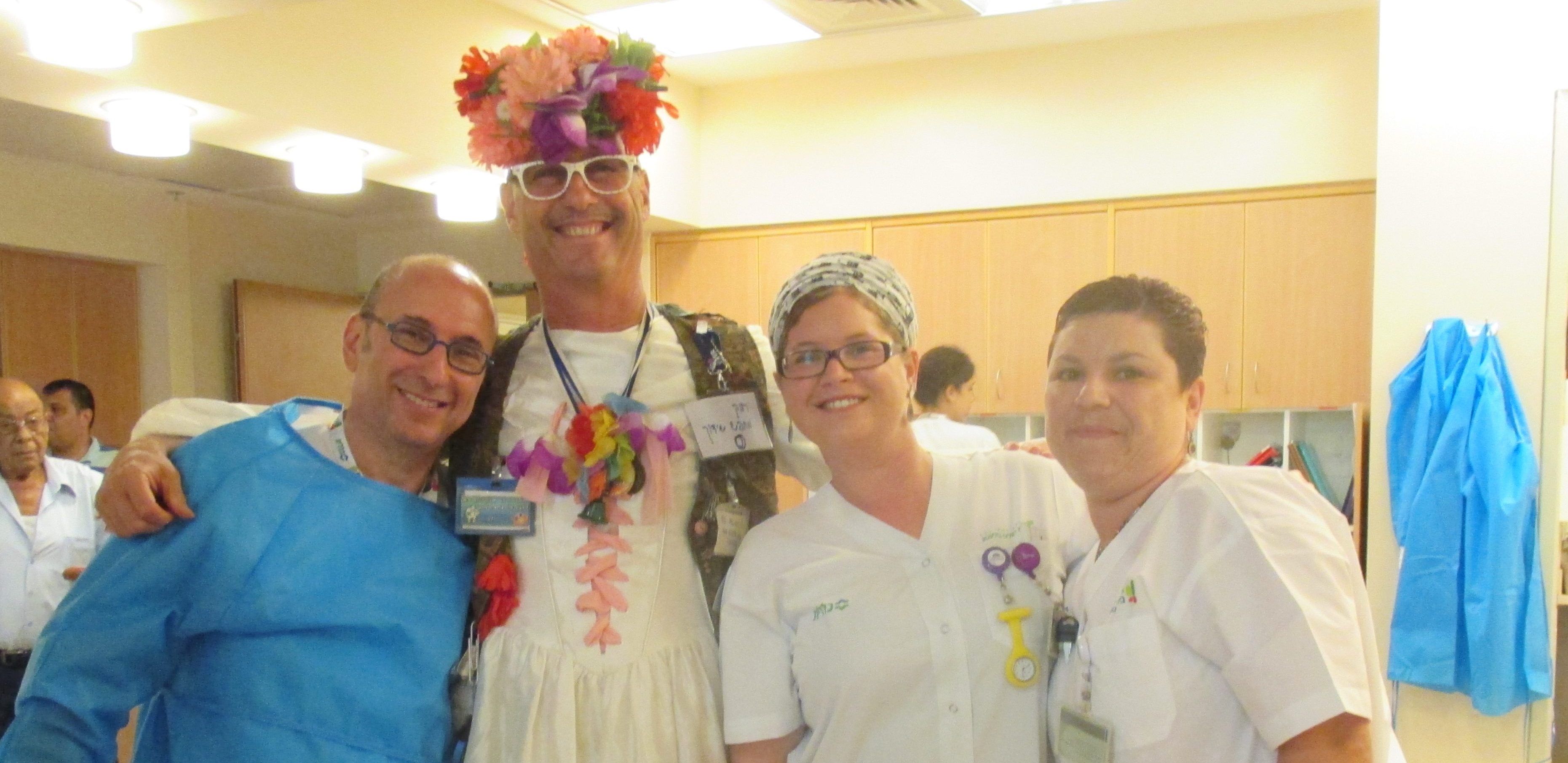Written by Dr. Amnon Raviv. This article originally appeared in Rhoda Goldman Plaza’s monthly publication The Olive Press.

Medical clowning has been primarily identified with working with children in pediatrics wards in hospitals. But over the past decade, more and more medical clowns have been working with adults and with patients with dementia as part of holistic care.
Along with traditional medical care by hospital staff, the medical clown treats the patient’s emotional side. Furthermore, medical clowning has unique advantages in working with patients with dementia, as several studies have shown that humor assists in improving the quality of life of patients with dementia.
Clowning and Dementia
The clown, as the ultimate comic figure, creates interactions with patients based on humor, which empowers, calms, and strengthens the patient while reinforcing the patient’s connection with the surroundings – which is critical for patients with dementia. Medical clowning is an interdisciplinary therapeutic art, and the medical clown has a “kit” of multiple skills (including humor, drama, music, and dance), all of which have a beneficial, therapeutic impact on patients.
The clown is the archetypal figure of the world of imagination and humor; as an archetype, the medical clown expresses the energetic polarities of seriousness and lack of seriousness, order and disorder – thus reflecting the internal tensions of the patient with dementia and assisting the patient, with the help of humor, self-expression, and therapy. Working with adults and with patients with dementia should be medical clowning’s future mission. Realization of the full potential of medical clowning will bring about improved quality of life of many patients.
Medical clowning is an effective therapy in working with patients with dementia because it is an interdisciplinary expressive therapy by its very nature, integrating several skills such as drama, music, and dance, while conducting a humorous interaction. Each of these arts has a beneficial therapeutic effect on patients with dementia. The medical clown is a skilled improviser with the capacity to respond to the authentic, immediate need arising from any patient in any given situation.
The clown’s capabilities and skills, together with the humor and fantasy that are integral to the clownish image and language, are what enable the unique interaction with so many possibilities and that is so beneficial in working with patients with dementia. The use of humor improves the quality of life for patients with dementia, dissipates tensions and calms down agitated emotions, and improves patients’ social bonds.
Dr. Amnon Raviv is a pioneer in the field of medical clowning ‒ the first clown doctor to earn a PhD in Medical Clowning. Raviv has written the book “Medical clowning: The healing performance”, part of the Enactment Series edited by Prof. Richard Schechner, published by Seagull Books (2017) and distributed by the University of Chicago.
To learn more about support for people experiencing dementia and their families, learn more about our Center for Dementia Care or call us at 415-449-3700.